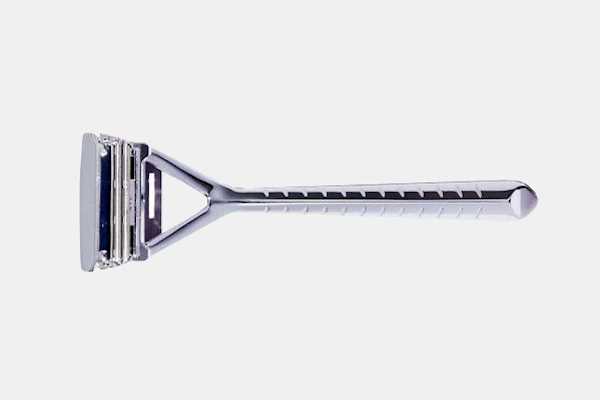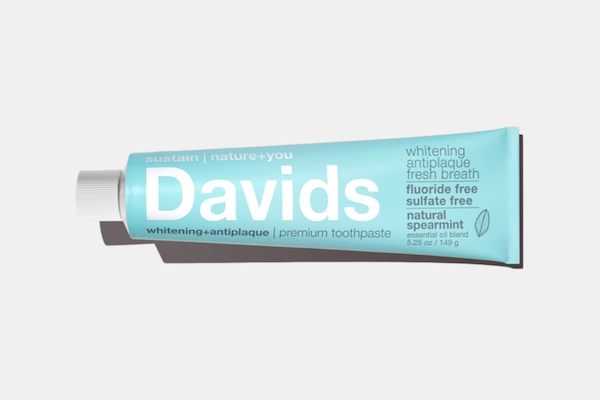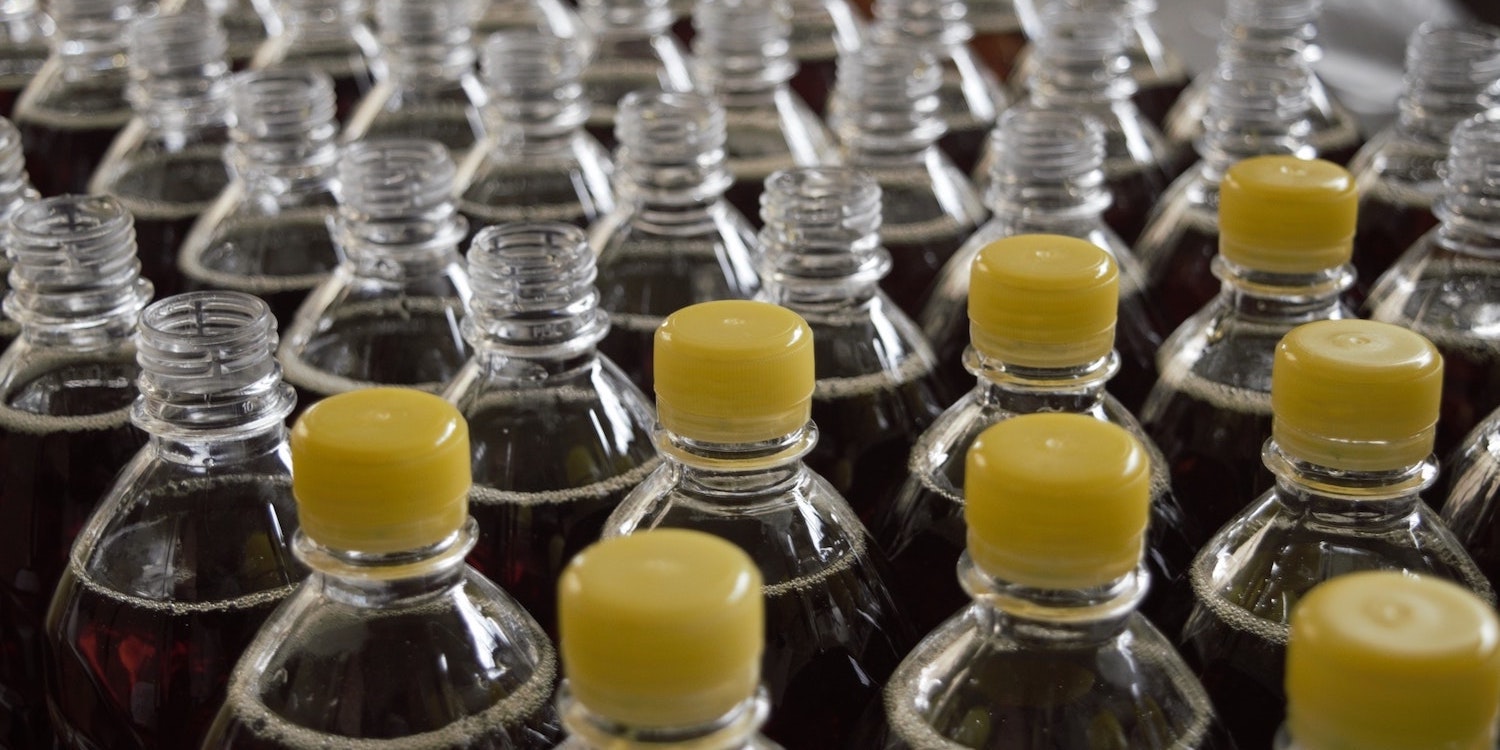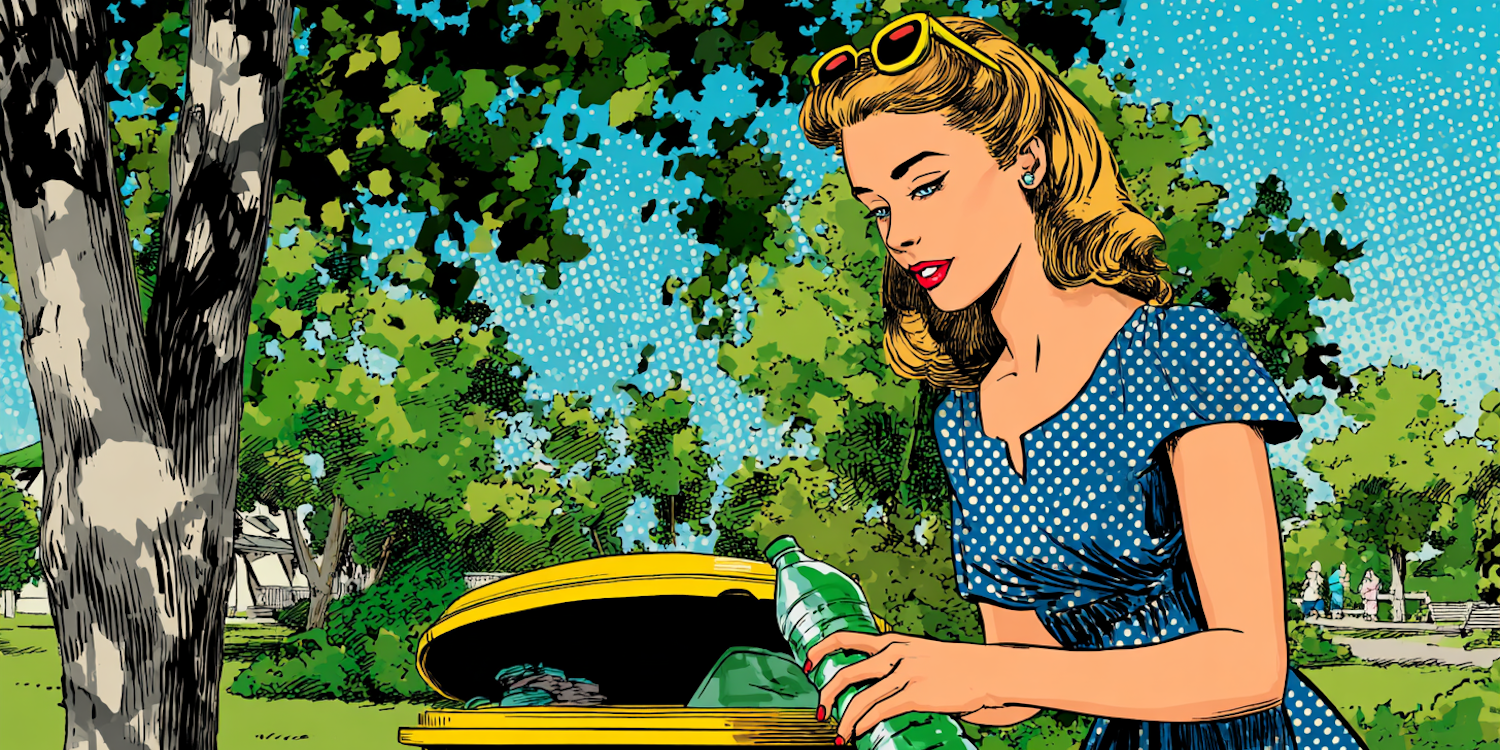You may have recently seen an ad discussing Pepsi and Coca-Cola's newest sustainability initiative. They plan to protect the planet by getting, “every bottle back.” If you haven’t seen it, you can watch the commercial here.
The ad was created by the American Beverage Association. In the commercial, three actors share how major water and soda companies are going to make their plastic bottles more recyclable. That way, they can re-use them for their beverages. The ad claims to be making sustainable steps to help protect the planet. It implies that organizations like Dr. Pepper and Smart Water are “doing their part” by getting “every bottle back”.
What may seem like a step in the right direction for plastic producers is run-of-the-mill greenwashing.
Rather than seek out innovative sustainable solutions to end plastic use, the American Beverage Association is doubling down on plastic bottles. This isn’t the first time the plastic industry has used greenwashing as a way to combat negative consumer perceptions, either.
So before you run off to recycle your plastic bottle, here are some things you should know.
What’s Greenwashing?
If you’re new to our blog, you may not know what greenwashing is. At its most simple definition, greenwashing is when an organization claims to be doing something sustainable for the press and appearance of being sustainable, rather than actually doing something sustainable to help the planet.
You can check out our previous blog post on greenwashing to get a deeper understanding of the issue.
How Recyclable is Plastic? Not Very Recyclable
To recycle plastic, you have to melt it down, which degrades the material. This degradation happens because plastic is made of long chains of polymers. When plastic is melted, the polymers are shortened. This results in the recycled plastic being less strong and losing some of its transparency. When it comes to recycling, plastic can’t be recycled more than once or twice before it becomes unusable.
This process is called downcycling. This term means that each time a plastic is recycled it becomes a lower value or quality product. And, in order to use recycled plastic, plastic manufacturers add virgin materials to upgrade its quality.
The American Beverage Association is focusing on recovering plastic bottles so they don’t end up in rivers and oceans. But our global warming and plastic crisis isn’t only a recovery issue. A bigger step in the right direction would be to stop using plastic bottles altogether.
Because, once a bottle has been recycled twice, it reaches its end of life.
What Happens When Plastic Reaches Its End of Life?
Plastic takes 45 to 1,000 years to decompose. And, some scientists argue that plastic never decomposes. Rather, plastic will end us as the microplastics floating in our oceans… with the other plastic that hasn’t broken down yet.
And, in the history of plastic, less than 10% has ever been recycled.
A History of Plastic Greenwashing by Oil and Gas
As we mentioned earlier, this isn’t the first time the plastic industry has tried to do a campaign like this. For decades the plastic, and oil and gas industry, have told the general public that plastic is a good product, and you should recycle it.
In 2020, NPR did a story on how plastic has consistently been promoted as a helpful, recyclable item, despite the information the plastic industry had from scientists and experts. These greenwashing ads dated all the way back to the 1970s.
That means we’re experiencing 50 years of blatant and reckless greenwashing by the plastic industry.
So, with this wave of press comes a new wave of claims. The Every Bottle Back website touts that the American Beverage Association is, “Using less new plastic.” Which is true, but doesn’t solve our plastic crisis. Using less plastic doesn’t mean they aren’t using any new plastic. And that plastic has to end up somewhere.
Their website also states, “Our bottles are not single-use plastic.” Which is untrue. Unless someone re-uses the bottle multiple times, it is single-use plastic. It gets one use before it’s encouraged to be recycled and then becomes a new bottle.
And, only 30% of PET plastic bottles (the plastic they’re going to make their bottles from) are recycled right now.
The American Beverage Association Has Better Solutions at Their Fingertips
Have you ever noticed that you can buy the same soda in different materials? There’s often a plastic container, an aluminum container, and sometimes a glass container too?
Aluminum and glass are infinitely recyclable materials. When aluminum is recycled it uses 95% less energy than it takes to produce new aluminum. The same scientists that told the plastic industry for decades that there is little hope we’ll find a way to recycle plastic also told the plastic industry that there are materials that are recyclable hundreds of times.
So, why do organizations like the American Beverage Association have their hearts set on using plastic?
Why is the Every Bottle Back Campaign Pushing Plastic Bottles Rather than Sustainable Alternatives?
The oil and gas industry makes $400 billion dollars a year on plastic. It’s likely that they’re encouraging us to recycle it to save face, which they have a history of doing. The reality is, the plastic industry is creating good press to ride out the negative sentiment around plastic. They’re hoping to change the perspective of the public, not revolutionize the recycling industry.
Plus, since virgin plastic is incredibly durable and never breaks, it almost never creates a capital loss. Glass, for example, is an infinitely recyclable material. But, it’s a much riskier product to ship. Plastic is durable, lightweight, and affordable. So, the oil and gas industry doesn't want us to move away from using plastic.
But, they know recycling plastic isn’t actually a viable option, even with putting money towards local recycling centers. Plus, producing plastic is cheap. So there’s likely little intent to execute on their timeline. Oh wait, we haven’t touched on that yet?
Also, the Every Bottle Back Campaign Doesn’t Clearly Mention Their Timeline
We were a little skeptical of the wording in the ad the Every Bottle Back campaign used. We noticed that they said their bottles, “are being carefully designed.” Which implied that they hadn’t put the processes into place. Their “eco-friendly” recycling practices aren’t applicable today, they’re a pipe dream.
If you do a little digging on the website, you’ll find some dates in the fine print. Keurig and Dr. Pepper will have 100% recyclable or compostable packaging and use 30% post-consumer recycled content across its portfolio by 2025.
PepsiCo will make 100% of its packaging recyclable, compostable, or biodegradable by 2025. But, biodegradable is a concerning term. It’s often used as an umbrella term for greenwashing organizations. Plastic is a biodegradable material if you consider some scientists suggest it breaks down over 45-1,000 years.
The ad might give you might get the impression that the American Beverage Association has already made these sustainable changes– they haven't.
Major press pushes with vague goals and lofty promises are not new to the plastic industry. In the past when the plastic industry has promised to create sustainable changes in neighborhoods have completely failed compared to their original missions. There’s no track history of executing on their promises. And there’s nothing holding them accountable to doing it.
Recycling plastic isn’t a great option. That’s why we have to demand better.
We Must Demand Better of Businesses and the Every Bottle Back Campaign
We’re at a critical stage of climate change where we need to ask organizations like Pepsi, DASANI, Coca-Cola, Dr. Pepper, and LIFEWATER to do better. The public doesn’t need to be given a feel good ad campaign that tricks them into thinking plastic is special.
Because, we can’t save the planet and use plastic like we do today. We have to find ways to reduce the amount of plastic we’re creating, recycling and sending to landfills.
So, when the American Beverage Association tells you they’re doing their part by getting, “every bottle back,” do the planet a favor and consider buying a canned Dr. Pepper instead.






